Wildfire County Coordinator Program
Established in 2021, the Wildfire County Coordinator Program seeks to educate, encourage, and develop countywide community collaboration and coordination among wildfire mitigation groups. The program, powered by a partnership between the California Fire Safe Council and CAL FIRE, has provided funding to 52 of California’s 58 counties to hire a Wildfire County Coordinator and establish critical local capacity to plan and implement wildfire resilience strategies on the ground.
The Wildfire County Coordinators have served as a vital local resource to secure funding, implement mitigation projects, engage vulnerable populations, and build resilience in high-risk communities. In a short period of time, Wildfire County Coordinators have become a crucial link between state strategy and local execution—ensuring California communities are better prepared, better connected, and more resilient to wildfire.
To learn more about the Wildfire County Coordinator Program, scroll below to find your County Coordinator, view the program’s impact metrics, or read through the program’s testimonials.
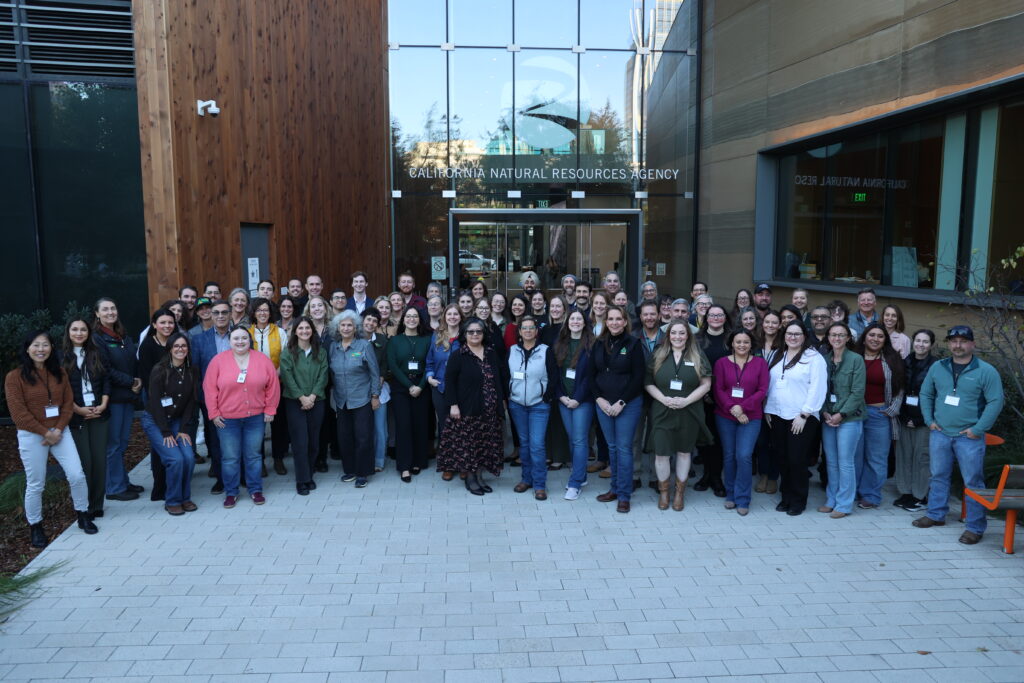
Wildfire County Coordinator Program Impact
This small investment in community capacity has produced substantial mitigation and resiliency benefits for the state.
As of September 2025, across 52 of 58 California counties, County Coordinators have accomplished the following:
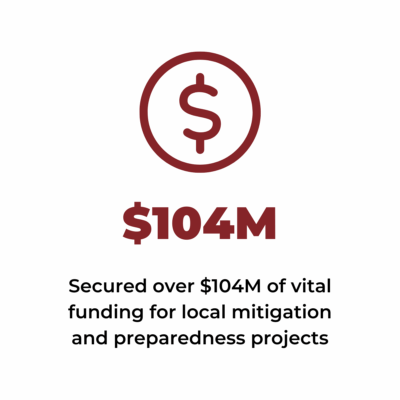

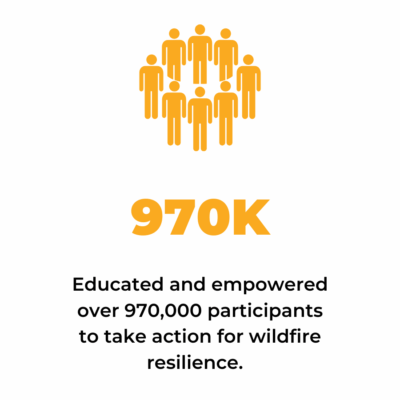
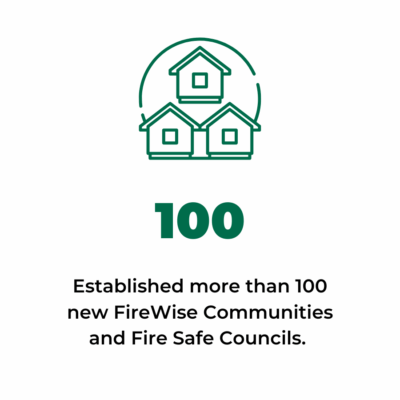
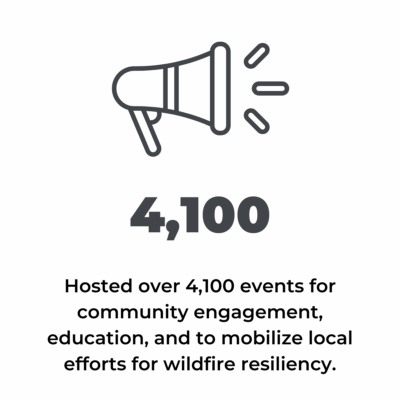
Wildfire County Coordinator Testimonials
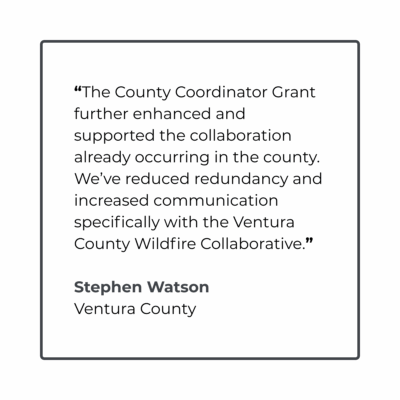
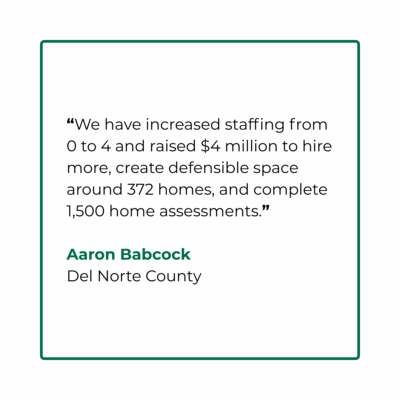
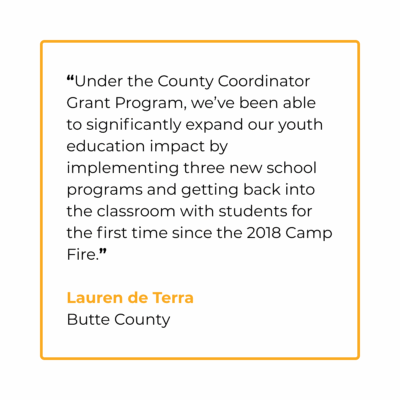
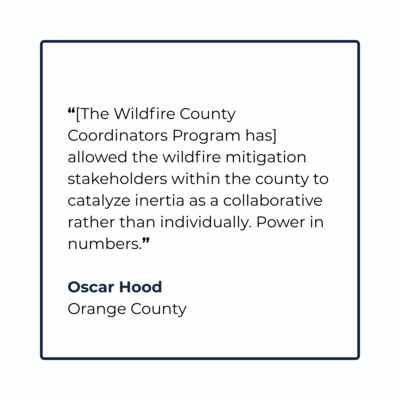
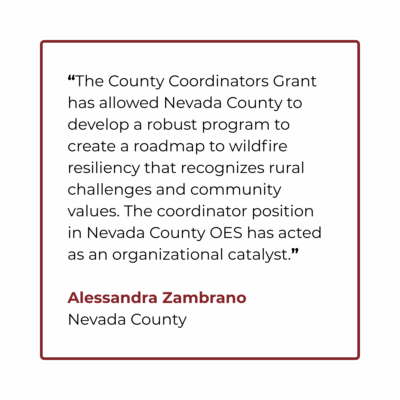
WHAT’S NEXT
The Wildfire County Coordinator Program plans to build upon the existing program infrastructure to create a long-term, sustainable mechanism for community-level execution of state strategy, tailored to meet local needs. A few of the program’s goals include:
- Operationalizing the Wildfire and Forest Resilience Action Plan at the county level – in sync with county priorities
- County planning and project prioritization
- Accelerate home hardening, defensible space implementation, and public education
- Standardize data collection to track local and statewide wildfire resilience progress
Ultimately, the Wildfire County Coordinator Program aims to improve public safety, community insurability, and wildfire preparedness across the state of California.
Find Your Wildfire County Coordinator
Webinars & Events
Wildfire County Coordinator Monthly Meeting Series
(open to County Coordinators only)
This meeting occurs on the third Tuesday of each month at 11 AM PT. For more information, contact Lara Buluc, Wildfire County Coordinator Program Manager, at: lbuluc@cafiresafecouncil.org.
Our Partners
The Wildfire County Coordinator Grant Program is made possible by:

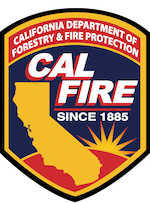
Have Questions?
To learn more about the Wildfire County Coordinator Grant Program, please contact Lara Buluc, Wildfire County Coordinator Program Manager, at lbuluc@cafiresafecouncil.org
The Wildfire County Coordinator Program is part of California Climate Investments, a statewide program that puts billions of Cap-and-Trade dollars to work reducing GHG emissions, strengthening the economy, and improving public health and the environment – particularly in disadvantaged communities. The Cap-and-Trade program also creates a financial incentive for industries to invest in clean technologies and develop innovative ways to reduce pollution. California Climate Investments projects include affordable housing, renewable energy, public transportation, zero-emissions vehicles, environmental restoration, more sustainable agriculture, recycling, and much more. At least 35 percent of these investments are located within and benefiting residents of disadvantaged communities, low-income communities, and low-income households across California. For more information, visit the California Climate Investment website at: www.caclimateinvestments.ca.gov.
